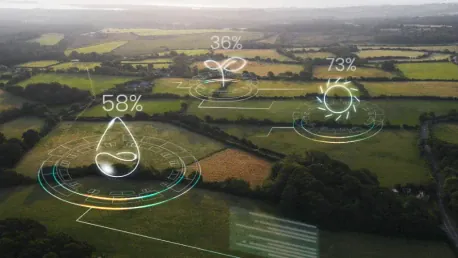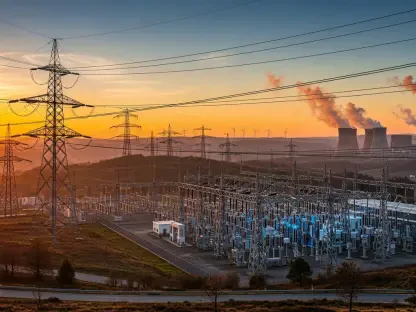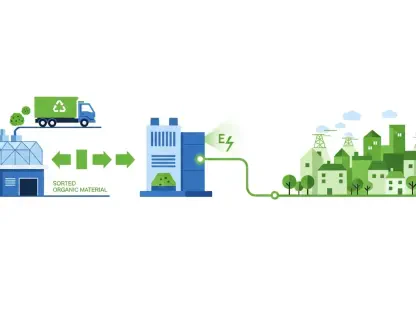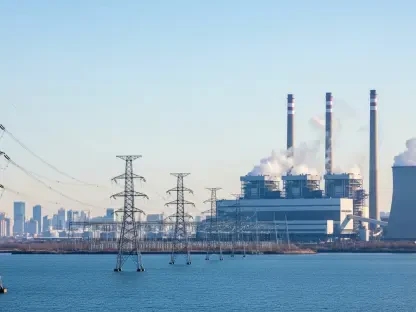The complexities and challenges of ensuring sustainable bioenergy use extend far beyond its application in transportation. The European Union (EU), leading the charge for sustainable energy solutions, has implemented stringent certification requirements to ensure that biofuels used for various purposes do not cause ecological or social harm. This article delves into the historical context, current regulations, and importance of certification in promoting sustainable bioenergy.
Historical Context of Biofuel Use in the EU
The Introduction of the Renewable Energy Directive (RED)
In 2010, when the EU introduced the Renewable Energy Directive (RED), it included a controversial 10% target for renewable transport, significantly increasing demand for cheap, crop-based biodiesel, such as palm and soy oil, from Asia and South America. The result was catastrophic, leading to approximately four million hectares of forest destruction. This extensive deforestation not only displaced land meant for food production but also increased atmospheric emissions due to the loss of carbon-absorbing vegetation.
As crops were grown for biodiesel production, valuable land resources were taken away from food production, contributing to food insecurity. Additionally, the conversion of forests and other vegetation to agricultural lands released stored carbon, exacerbating atmospheric carbon levels. These consequences led to public outcry and pressure on policymakers to rethink their approach and mitigate the unintended environmental impacts of biofuel policies.
Revisions and New Limits
In response to such adverse effects unleashed by the initial directive, the EU set new limits in 2015 that capped ‘first generation’ biofuels at no more than 7% of transport energy and froze the use of palm oil, which will be entirely phased out by 2030. These measures aimed to curb forest destruction and minimize the displacement of agricultural lands. Further revisions adopted in 2018 and 2023 imposed stricter certification requirements to guarantee the sustainability of biofuels placed on the EU market, ensuring that every biofuel was scrutinized under tight ecological and social criteria.
The updated directives reflected a more holistic approach to sustainability, extending beyond transport to cover various applications of bioenergy. These include heating, electricity generation, and industrial processes. The stricter certification requirements serve to verify the sustainability of all biofuels, regardless of their end-use, to mitigate ecological damage and social dislocation. The revised policies demonstrate the EU’s commitment to correcting past missteps and leading a more sustainable energy transition.
Expanding the Scope of Certification
Beyond Transportation: Heating, Electricity, and Industrial Processes
The scope of certification now extends beyond transportation, encompassing bioenergy used for heating, electricity, and industrial processes. These applications hold significant potential for reducing greenhouse gas emissions if conducted sustainably. For instance, non-transportation bioenergy includes biogas produced via anaerobic digestion of organic waste, bioliquids derived from vegetable oils or animal fats, and solid biomass like wood and agricultural residues. Each of these forms of bioenergy can play a crucial role in displacing fossil fuels and combating climate change.
However, ensuring sustainability in these applications necessitates diligent oversight and comprehensive certification processes. Anaerobic digestion, for example, transforms agricultural residues, food waste, or wastewater sludge into biogas, but improper handling can lead to methane leakage, nullifying emission reduction benefits. Similarly, sourcing bioliquids and solid biomass sustainably is critical to prevent issues such as deforestation, biodiversity loss, and unfair labor practices. Therefore, robust certification systems are indispensable in achieving true sustainability in diverse bioenergy applications.
Importance of Robust Certification Systems
Robust certification systems are essential to verify the environmental, social, and economic sustainability of these bioenergies, ensuring they align with the EU’s stringent sustainability criteria. Certification schemes are designed to guarantee emission reductions, responsible land use, biodiversity protection, and adherence to human and labor rights standards. Without proper certification, unregulated bioenergy production can result in severe environmental degradation and social injustices.
Certification helps prevent issues like deforestation, biodiversity loss, and human rights violations by adhering to a set of standardized criteria. These standards ensure that bioenergy feedstocks are sourced responsibly, with minimal ecological footprints and ethical labor practices. Additionally, certified bioenergy can offer economic benefits by creating sustainable markets and fostering innovation. Maintaining rigorous certification processes is paramount to achieving the EU’s vision of a sustainable and equitable bioenergy sector.
Certification Schemes and Their Role
Overview of Certification Schemes
Several prominent certification schemes are recognized for their role in promoting sustainable bioenergy practices. These include the Roundtable on Sustainable Biomaterials, REDcert, the Sustainable Resources Verification Scheme, the Forest Stewardship Council, and the Programme for the Endorsement of Forest Certification. Among these, the International Sustainability and Carbon Certification (ISCC) system is one of the most acknowledged and comprehensive.
Each certification scheme employs distinct criteria to assess and verify the sustainability of bioenergy production. For instance, the Roundtable on Sustainable Biomaterials focuses on reducing lifecycle emissions and enhancing social impacts, while the Forest Stewardship Council ensures responsible forest management practices. These schemes collectively contribute to a diverse and multifaceted certification landscape, supporting various aspects of sustainability. However, among these, ISCC stands out due to its extensive recognition and robust certification methods.
The ISCC System
The ISCC system offers two primary certification methods: ISCC EU, recognized by the European Commission for compliance with sustainability and greenhouse gas emissions savings criteria, and ISCC PLUS, a voluntary scheme for the circular economy and bioeconomy. Jessica Scheimann of ISCC explains that the system operates as a chain-of-custody certification. This documentation method forwards sustainability attributes of materials through the entire supply chain via Sustainability Declarations, ensuring transparency and traceability.
The ISCC system is grounded in six key principles. The first principle addresses legal sustainability requirements mandated by the EU directive, ensuring compliance with applicable laws and regulations. The remaining principles expand beyond legal mandates, emphasizing aspects such as prohibiting biomass production on protected or carbon-rich lands, safeguarding biodiversity, and upholding social standards, including human and labor rights. This comprehensive approach makes ISCC a valuable tool for verifying the sustainability of bioenergy across various sectors.
Challenges in Certification for Non-Transportation Bioenergy
Complex Supply Chains and Traceability
The certification of non-transportation bioenergy faces several challenges, such as complex supply chains involving multiple stakeholders and traceability difficulties. High certification costs can be prohibitive, particularly for small producers or those in developing regions, making it challenging to meet rigorous certification standards. Inconsistent certification standards across different regions and schemes can also lead to confusion and hinder widespread adoption.
Traceability is a critical aspect of certification, ensuring that sustainable practices are maintained throughout the supply chain. However, multiple intermediaries and diverse sourcing regions complicate this process, making it difficult to verify the sustainability of bioenergy feedstocks. Establishing reliable traceability mechanisms is essential to mitigate risks of fraudulent claims and ensure the integrity of certified bioenergy. Addressing these challenges requires concerted efforts to streamline certification processes and support small producers in navigating complex requirements.
Waste-Derived Bioenergy and Enforcement Issues
Another significant challenge is the traceability of waste-derived bioenergy sources like biogas and bioliquids, compounded by weak enforcement in remote areas with poor governance. Properly tracking and verifying the sustainability attributes of waste-derived bioenergy is crucial, as these sources often involve varied and diffuse materials. Weak governance in certain regions further complicates enforcement, leading to potential gaps in oversight and increased risks of unsustainable practices.
Improving enforcement mechanisms is vital to address these issues and ensure compliance with certification standards. Technological advancements, such as digital traceability solutions, can enhance monitoring and verification processes, providing real-time data on bioenergy feedstocks and supply chains. Additionally, harmonizing standards across different certification schemes and regions can create a more uniform and transparent certification landscape. Supporting small producers and enhancing enforcement capabilities are crucial steps in overcoming these challenges.
Future Directions and Recommendations
Early Certification and Digital Traceability
Experts suggest early certification, ideally before it becomes legally mandatory, to ensure that producers are well-prepared for future obligations. For example, ISCC PLUS goes beyond legal requirements, enabling companies to meet customer and shareholder expectations and demonstrating their commitment to sustainability. Adopting early certification can provide a competitive advantage, showcasing a proactive approach to sustainability and building trust among stakeholders.
Advancements in digital traceability can significantly improve the efficiency and reliability of certification processes. Technologies such as blockchain can enhance transparency, ensuring that sustainability attributes are accurately recorded and maintained throughout the supply chain. Real-time data access can facilitate better monitoring and verification, reducing the risks of non-compliance and fraudulent claims. Embracing digital solutions is essential to modernize certification processes and support the growing demand for sustainable bioenergy.
Harmonized Standards and Support for Small Producers
Ensuring sustainable bioenergy use is a complex task that goes well beyond its role in transportation. The European Union (EU) is at the forefront of championing sustainable energy solutions and has put in place strict certification requirements. These regulations ensure that biofuels used across various sectors do not lead to ecological or social damage. This article explores the historical background, current rules, and the pivotal role of certification in advancing sustainable bioenergy.
The EU’s proactive measures address the importance of not only producing but also using biofuels in a way that doesn’t harm the environment or society. These certifications are crucial for maintaining a balance, ensuring that the pursuit of green energy doesn’t inadvertently lead to negative consequences. By examining the EU’s stringent criteria, we gain insight into the comprehensive strategies needed to promote truly sustainable bioenergy. This approach highlights the broader implications and necessary steps to integrate biofuels responsibly across different sectors.









